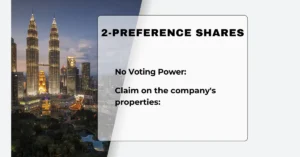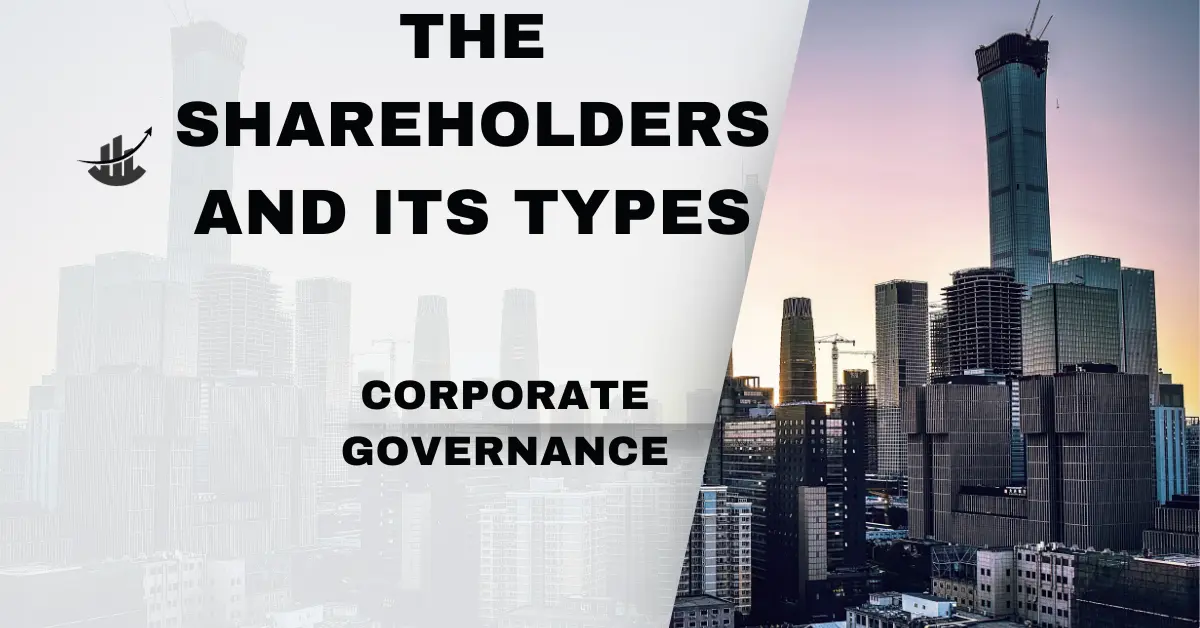The Shareholders and Its types
WHO IS A SHAREHOLDER?
Introduction:
The term “shareholders” refers to individuals who possess ownership stakes in a company. These individuals, commonly known as shareholders, hold shares representing their ownership interest in the company. He is considered a member of the company and its co-owner with certain rights and obligations. Now a company may issue different types of shares, each with its own peculiar attributes. The entitlements, authorities, and responsibilities of a shareholder are contingent upon the category of shares they possess. We will therefore first briefly discuss the types of shares.
The Shareholders and Its types:
Two types of shares:
1-Ordinary Shares
2-Preference Shares
However, in the present-day business world, most companies issue only ordinary shares.
1-ORDINARY SHARES
The Shareholders and Its types, Ordinary Shares is a British term which is widely used in Pakistan. The American term for these shares is Common Stock. Another term used for these shares is equity shares. Ordinary shares are called Real shares capital of a company.
Salient features of ordinary shares are:
(a) Permanency.
(b) No nominal cost
(c) Residual claim on profits and assets
(d) Voting power.
These features, explained below, make the holders of these shares in ultimate risk bearers and controllers of the company.

Permanency
Amounts received from sale of its ordinary shares cannot be refunded by the company to the shareholders during its life time. These can be repaid only at the time of the Amounts received from sale of its ordinary shares cannot be refunded by the company market (stock exchange) at any time, there is no obligation on the part of the company’s liquidation.
While a company is free to buy its own shares from the open company to buy-back the shares, nor can the shareholders demand the buy-back of their shares. This is a very important feature of equity shares. A company that raise equity does not have to plan for its repayment – it only has to meet investor’s expectation of dividends and growth in earnings.
No Nominal Cost
A company is not obliged to pay any dividends to ordinary shareholders. At least theoretically, a company can go on forever without paying any dividends to its equity holders. The size of dividends is decided each year by the company’s shareholders. The management of a company can convince its shareholders that it has lucrative reinvestment opportunities, the shareholders can vote to forego dividends to help built up the company’s financial base.
Residual Claim on Profits
Equity holders are entitled to only the residual profit of a company. Dividend can be paid to equity holders only after all other classes of capital have been adequately compensated. However, this also means that whatever profit is left after remunerating al other classes of capital, it all belongs to equity holders.
Residual Claim on Assets
In the event of a company’s liquidation, ordinary shareholders have claim on the company’s assets after the claims of creditors and other classes of shareholders have been met in full. The important point to note here is that claims of creditors and preference shareholders are limited to the nominal value of their debt, or shares.
If there were just enough to pay the creditors and preference shareholders, the ordinary shareholders will get little or nothing.
Voting Rights
The Shareholders and Its types, Another important feature of ordinary shares is their right to vote. Since the ordinary shareholders are the true risk bearers of the company, usually only they have a right to vote at the company’s meeting on such matter as election of directors, declaration of dividends, major policy issues, etc.
2-PREFERENCE SHARES
Salient features of Preferences shares are:
The Shareholders and Its types, Preference Shares (or Preferred Stock as Americans call them) form a part of the share capital, but their holders do not possess the same status as ordinary shareholders.
Though in theory both ordinary and preference shareholders are owners of company, preference shareholders cannot claim to be the ‘real’ owners.
No Voting Power:
The Shareholders and Its types, They usually do not have any voting power. This effectively eliminates any possibility of this class of shareholders influencing the policy-making process of the company shareholders, but only under prescribed conditions like in a situation where In certain cases, the Articles of a Company may allow voting rights to preference shareholders.
Their claim on company’s profits comes before ordinary shareholders’ claim, but it restricted to a pre-determined maximum. This maximum is stated by way of percentage of the nominal value.
Claim on the company’s properties:
The Shareholders and Its types, Their claim on the company’s properties comes after outsiders but before the ordinary shareholders. If some assets still remain, the proceeds of these assets are used to refund the capital to the preference shareholders.
https://fantesticfinance.com/financial-planni…e-and-disability/



